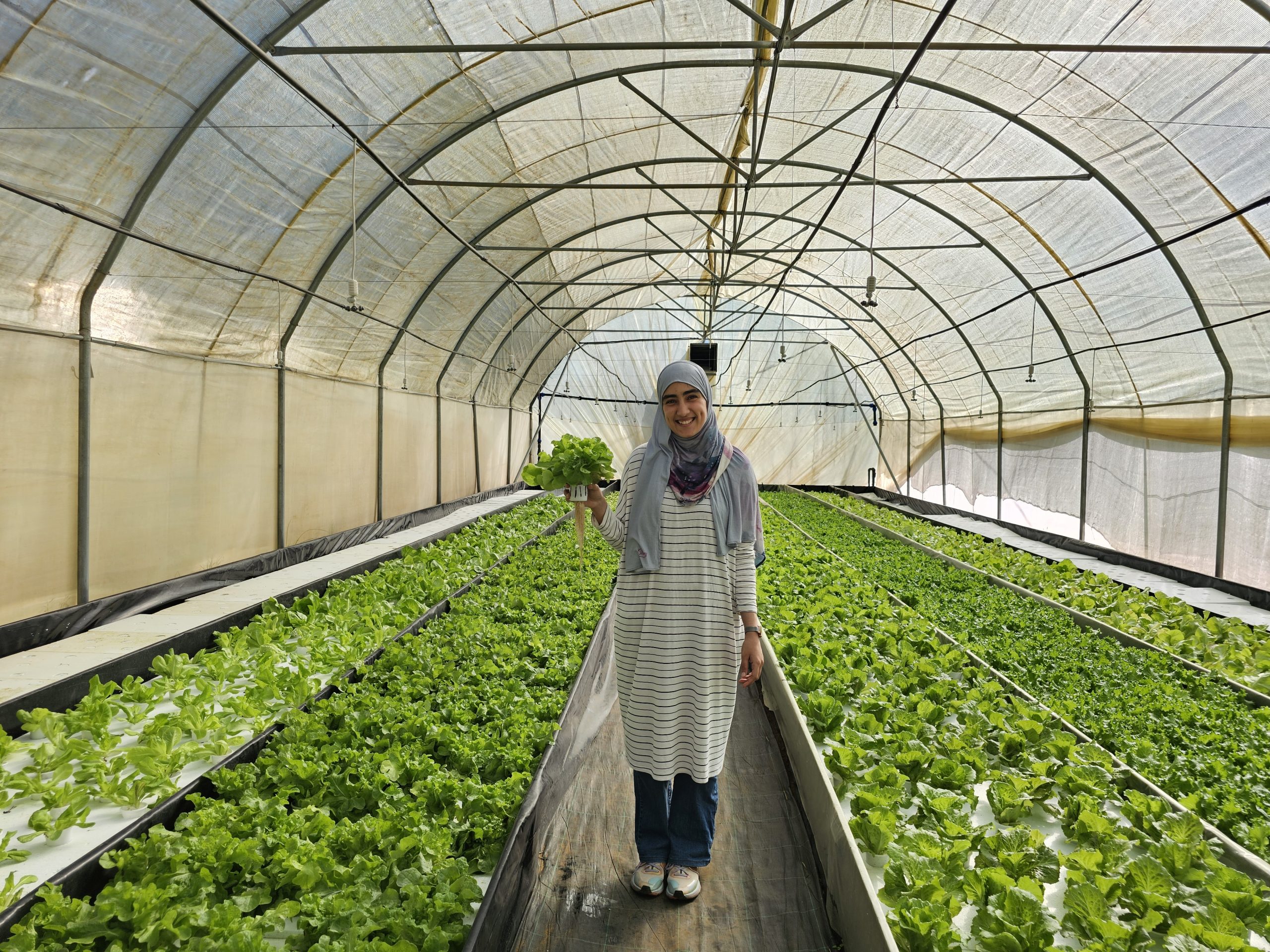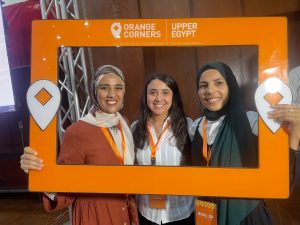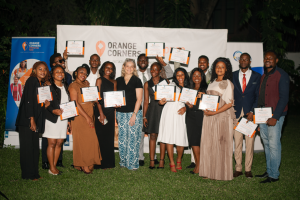As climate change accelerates and water scarcity threatens the future of farming in Morocco, Orange Corners Morocco alumna Sokayna Bellam is leading a new kind of agricultural revolution. Together with her co-founder Amine Derj, she launched the country’s first homegrown hydroponic farming startup. Jodoor brings sustainable, high-yield agriculture to regions where it’s needed most. By designing accessible, locally adapted hydroponic greenhouses, Jodoor is not only changing the way crops are grown, but also how rural communities can farm year-round, earn stable incomes and build long-term resilience. We sat down with Sokayna to learn how this young agritech company is cultivating a greener, smarter future for Morocco and beyond.
Hi Sokayna! Could you introduce your startup, Jodoor?
I’m Sokayna, an agronomy engineer specialised in aquaculture and the co-founder of agritech startup Jodoor. We design, manufacture and manage affordable hydroponic greenhouses, made from local raw materials and adapted to local conditions. Controlled environment agriculture and hydroponic farming technology are used elsewhere, but not in Morocco, where you could argue these technologies are needed the most.
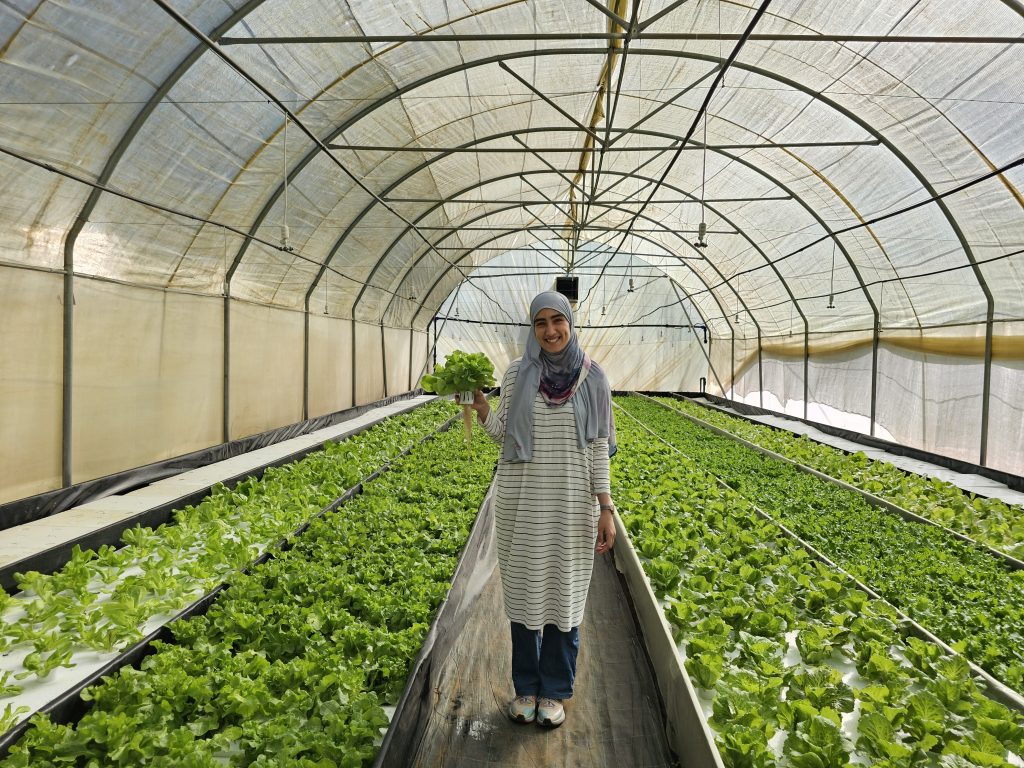
We already have two IPs and validated our technology with Mohammed VI Polytechnic University and Les Domaines Agricoles. They work with premium boutiques, B2B customers. Our Jodoor pilot farm serves their leafy greens needs, especially out-of-season. We also supply hotels and restaurants in the region. Afterwards we built our two own mid-tech greenhouses in Kenitra and Ben Guerir, trying to reduce the CapEx as much as possible to produce maximum yields – all to maximise the return on investment.
Our greenhouses are adapted to local climatological circumstances. Kenitra has a more mild coastal climate, while in Ben Guerir temperatures are more extreme. This has consequences for the technology used. The more extreme Ben Guerir climate requires more investment in climate control, for example. In both greenhouses we focused mainly on water reduction, as water scarcity is currently the most important challenge for Moroccan agriculture and this is where hydroponic farming can really make a difference. The irrigation system is truly the heart of our technology. But next we aim to focus on reducing other resources as well, so we can further optimise production.
In our own greenhouses we mainly produce leafy greens and aromatic herbs such as mint, as there’s a huge market for that in Morocco. With their short production cycles, they’re also risk-averse crops which produce revenue each month, which is super interesting for our clients. In our own facilities, we’re experimenting with different varieties, we test the production, the quality of the products, which fertiliser works best. Because of our complete control of the greenhouse environment, the amount of nutrients and fertiliser crops get, we’re able to produce a consistent flow of high-quality produce unmatched by traditional farming.
We started small with two greenhouses, but we just got an investment from Angel Investors from Belgium to scale production ten times. Our new model farm serves as a financial product, which allows us to grow our production capacity while offering investment high return investment opportunities. This will also mean more jobs for local farmers, mostly women. And not just any jobs: traditionally agricultural jobs in Morocco are seasonal, but since we produce all-year round this really gives them a foundation to build a stable future on.
Water scarcity is the most important challenge for Moroccan agriculture and this is where hydroponic farming can really make a difference
Sokayna Bellam, Jodoor
Comparing hydroponic farming to traditional farming, isn’t all this technology rather expensive?
High tech systems, like the ones used in Europe or the US, are generally very expensive, yes, but our systems are mid tech, which means they’re much more affordable – making them interesting for farmers in developing countries like Morocco. In traditional farming, you’re dependent on the quality of the soil or how much rain you’ll get each year. Hydroponic farming is a technology where we produce crops on water, without soil. The main advantage of this technology is that we’re recirculating resources. Giving the plants exactly what they need in terms of water and nutrients but never more, this allows us to greatly reduce the costs of fertilisers and other resources.
Another advantage is that we’re able to produce all year round. In traditional farming, you have 3-4 cycles per year, but with hydroponic farming you can go up to 8-10 cycles. Climate change is real here in Morocco. Every year rain is more and more scarce, it gets hotter and hotter. That seriously affects agricultural production. In a controlled environment like ours, you’re no longer dependent on seasonal production or the weather. You’re effectively multiplying the productivity and profitability of the land, while reducing your costs for inputs.
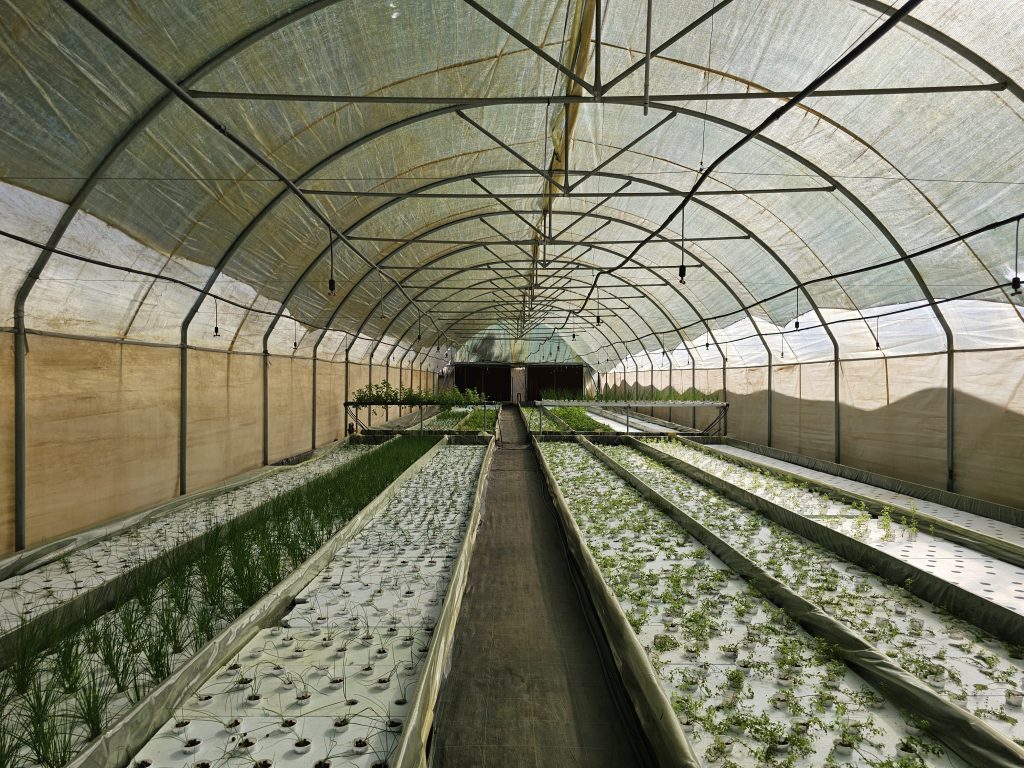
What’s it like being an agritech startup in Morocco?
Jodoor is three years old now, we’re still a young startup.. but I really feel we’re part of a new era in Morocco. There are a few other agritech startups, some very successful ones too, but we all mainly operate in rural areas. Our aim is to help farmers adopt new, sustainable technologies, help them create more revenue. It’s not an easy sector to enter, farmers prefer traditional practices and old technologies. But we enjoy doing this, because we really believe in our mission, and we believe as young people we should take the initiative to help the sector forward.
As an agronomy engineer, I know the problems the sector has from inside out, but I also know possible solutions. But neither the state nor individuals take much initiative here. We should get out and see what’s working well in other countries, and also invest in new technologies. There’s some investment done sure, but always in technologies that are already proven, not riskier, new technologies
Orange Corners was a great way to meet fellow entrepreneurs who share our excitement to develop our country. And although some are doing things that are quite far from what we do, others align more with our mission, especially technology-wise. Like Morocco Machinery, who are developing industrial machinery, or Tech In Hand with 3D solutions that we can use to build our new prototypes.
Jodoor is part of a new era in Morocco. As young people we should take the initiative to help the sector forward.
Sokayna, Jodoor
What are your future plans for Jodoor?
Our scalability plan is two-fold: on the one hand, to go beyond leafy greens. Develop new types of crops such as red fruits, crops like cucumbers, eggplants. And on the other hand, to partner with investors and farmers to grow our production capacity. We want to maximise our impact, both financially and environmentally speaking. We don’t want to keep this technology, which has the potential to make a real difference in Morocco, to ourselves. We imagine a new revenue sharing model, where we not just produce and sell our technology, but share our technology with partners to increase our distribution and access to markets. We provide farmers access to technology and then keep working with them to increase yields. A true partnership, where we receive part of the profit.
This way, our scalability won’t be linear. We’d like to quadruple our production capacity by the end of this year, and then multiply by four every year until we reach 20 hectares in the next five years. This is an ambitious plan, so clearly for that we also need strong partners. We’re currently partnering with the Domain and the OCP Group to reach this goal. The Domain is a renowned brand with plant expertise, access to markets and a strong distribution network. They allow us to focus on the technology, while they focus on the distribution of our products. The OCP Group not only produces the fertilisers we need in the production process, their industrial capacity also allows us to manufacture our own systems cheaper and integrate them in existing turnkey projects. Both partners are absolutely vital to our success.
And of course we’re not just looking at the local market, we’re also looking at exporting our technology. By 2027, we’d like to go international. Other North African countries have similar climate-related challenges, and there are many other African countries that also struggle with water scarcity.
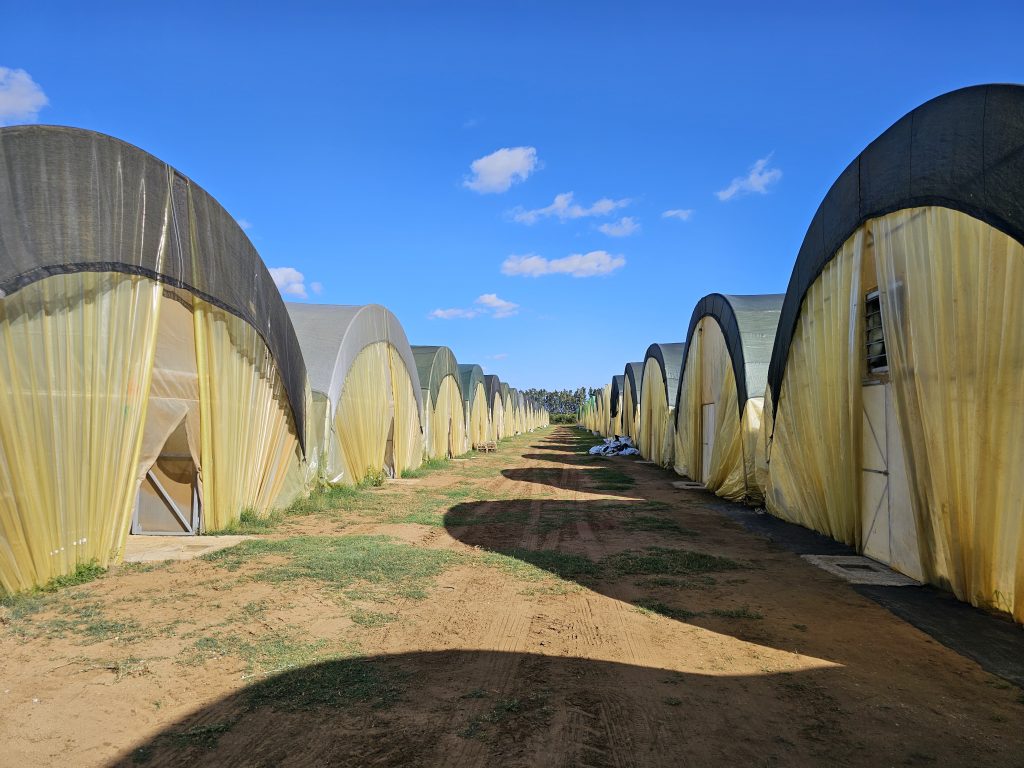
What do you need at this point to further scale your operations?
Funding and the right partners. We’re currently raising funds to be able to scale and invest in our R&D. With the upcoming extension, we’ll become financially autonomous, we’ll be able to cover our regular operational costs. The model in itself is profitable, if we were to reduce our R&D to a minimum we’d already be profitable with just the two farms we currently have. But to keep growing, we need to raise more funds.
Beyond funding, public sector support is also vital. We’re part of an agricultural revolution, but many farmers still work in traditional ways. The public sector can help raise awareness for the possibilities: convince farmers that this technology is accessible, profitable, and to spark their interest in this way of farming. Even better if they could help us distribute our technology to other regions in Morocco. That’s also in their own best interest, as climate change is already causing loss of jobs in rural areas. Hydroponic farming can play a role in addressing Morocco’s water scarcity, but implementing it takes skills, technology and industrial capabilities. To meet tomorrow’s demand, we need to invest today.
Follow Sokayna’s journey with Jodoor:

